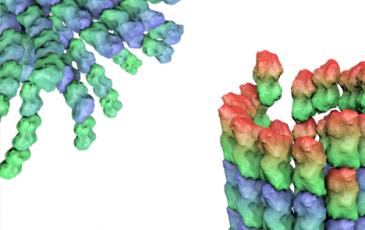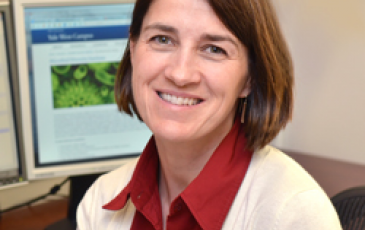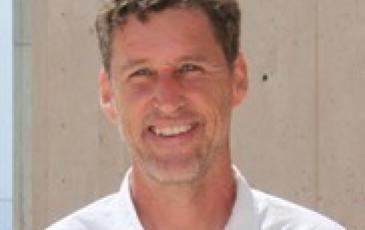Assemblies of biological macromolecules (proteins, DNA, RNA) are the functional units of cells and ultimate the whole organism. Visualizing these macromolecules, in different functional states, provides unique information on how they work and how they fail in the diseased state, and therefore can guide us in the design and improvement of therapies. But their extremely small size makes...
Past PMB Seminars
For a schedule of all Plant & Microbial Biology events, seminars, and lectures visit our calendar.
Erik Sathe, PhD Candidate: Evolution of Gliding in Lizards
Join us for the first new episode of The Graduates this spring semester as we speak with biologist Erik Sathe about his work on lizard locomotion. The Graduates, featuring graduate student research at Cal, is broadcast every other Tuesday on KALX 90.7 FM and online.
Christine Jacobs Wagner: Kustu Lecture: What makes the Lyme disease bacterium tick?
Christine Jacobs Wagner. Our laboratory is part of the Microbial Sciences Institute at the Yale West Campus. Our group studies the temporal and spatial mechanisms involved in bacterial physiology, with emphasis on chromosome dynamics, cell division, cell cycle regulation, cell morphogenesis and RNA biology. Our primary model organisms are Caulobacter crescentus, Escherichia coli and the Lyme disease pathogen Borrelia...
Center for Computational Biology Seminar
What can we learn from human genomics at scale and how do we get there?
Virginia Markham: Plant and Microbial Biology Student/Postdoc Seminar
Come join us to hear research going on in PMB from graduate students and post docs. There will be snacks and coffee/tea. Please bring a mug. Hosted by the Plant and Microbial Biology Student Group (PMBG). This event is sponsored by the UCB Graduate Assembly. Event is ADA accessible. For disability accommodation requests and information, please contact Disability Access Services by phone at...
Arash Komeili: Molecular Mechanisms of Organelle Formation in Bacteria
In the Komeili Lab, we have developed the tools to understand the molecular basis of magnetosome formation and magnetite biomineralization in Magnetospirillum magneticum AMB-1. These advances have helped us to uncover the potential function of a large number of "magnetosome genes." The current efforts in the lab are centered around defining the specific functions of these factors and leveraging...
Building Future Food at IndieBio
Everyday, food and its associated technologies are moving more and more towards the future. Indie Bio, the world’s largest seed biotech accelerator, addresses future impactful problems by funding companies that can solve them. Now, you have the chance to take some wisdom from IndieBio co-founder, Ron Shigeta. He has helped build companies such as Ava Winery, Astrona, Clara Foods, EnduraBio,...
Timothy Bowles: Agroecological Approaches for Addressing Climate Challenges in Agriculture: Processes, Predictions, and Evidence
As climate change progresses, extreme weather will further expose the vulnerabilities of highly-simplified, intensive agricultural systems. Agroecological approaches that diversify ag systems at multiple scales will be discussed in this seminar.
M. Sanjayan, PhD: Can Nature Save Us? Stories from the Natural World
2017 Horace M. Albright Lecture in Conservation At a time when humanity’s demands on the natural world have never been greater, Dr. M. Sanjayan’s keynote address highlights nature’s essential role in creating a livable future for people everywhere.







